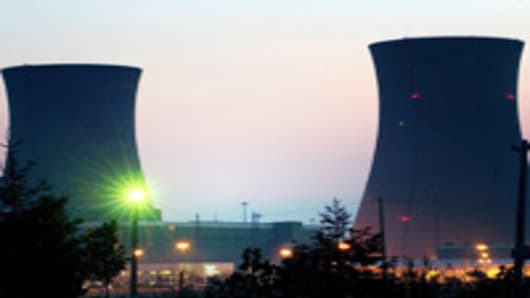North Korea is widely expected to hand China a long-delayed account of its shadowy nuclear activities on Thursday, a key step that could see it removed from Washington's list of terrorist states as well as win it diplomatic recognition and desperately needed fuel.
China is hosting six-party talks that early last year secured a deal offering North Korea energy, aid and diplomatic concessions in return for disabling its main nuclear facility and unveiling its past nuclear activities.
That phase of the nuclear disarmament deal was due for completion by the end of 2007, but wrangling over money, aid and the contents of the North's "declaration" has held up progress.
Officials involved in the latest talks say they expect hosts China to receive the declaration on Thursday.
North Korea is expected to follow this up with the demolition of the cooling tower at its key Yongbyon nuclear complex, a symbolic event highlighting its commitment to disable the source of its bomb-grade plutonium.
In an unprecedented move, Pyongyang has invited some Western media to record the event.
"We've talked to the Chinese, and we're expecting the North Koreans to turn in their declaration to the Chinese, probably tomorrow (Thursday). That's the target date," the chief U.S. envoy to the talks, Assistant Secretary of State Chris Hill, told reporters after arriving in Osaka, Japan, on Wednesday.
Hill said the declaration was likely to be soon followed by renewed six-party talks.
A spokeswoman for the Chinese Foreign Ministry said it had no firm information on whether the declaration would come as planned or how it would be announced.
The talks bring together North and South Korea, China, the United States, Japan and Russia.
Washington has already said it could move quickly to remove North Korea from its list of terrorism sponsors once the declaration has been handed over.
U.S. President George W. Bush called North Korea, Iraq and Iran an "axis of evil" in the wake of the Sept. 11, 2001 attacks on the United States, accusing them of state sponsored terrorism and of seeking weapons of mass destruction.
North Korea, in addition, has been accused of money laundering, counterfeiting U.S. currency and manufacturing narcotics.
Removal from the U.S. list would ease trade restrictions and open the way for other cooperation with the United States, and eventually enable North Korea to work with the World Bank and other international institutions.
Japan has expressed worry about the United States removing North Korea from the terror list before the issue of Japanese abducted by North Korean agents is addressed, but officials have recently indicated they now support the moves.
North Korea admitted in 2002 that its agents had kidnapped 13 Japanese in the 1970s and 1980s, five of whom have since been repatriated to Japan.


